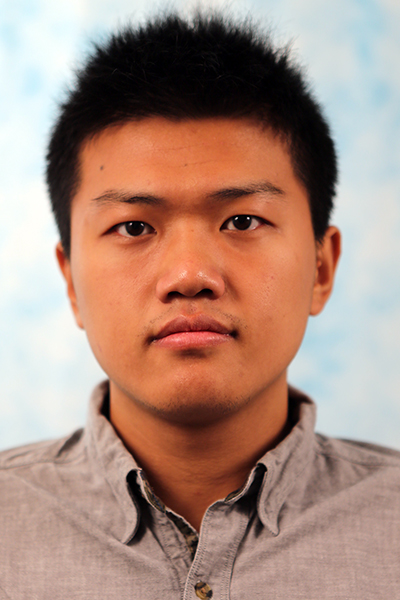Student Talks
Carnegie Mellon University
Visual Representation and Recognition without Human Supervision
Abstract: Visual recognition models have seen great advancements by relying on large-scale, carefully curated datasets with human annotations. Most computer vision models leverage human supervision to either construct strong initial representations (e.g. using the ImageNet dataset) or for modeling the visual concepts relevant for downstream tasks (e.g. MS-COCO for object detection). In this thesis, we [...]
Learning Compositional Radiance Fields of Dynamic Human Heads
Meeting ID: 942 4671 0665 Passcode: jkhzoom Abstract: Photorealistic rendering of dynamic humans is an important capability for telepresence systems. Recently, neural rendering methods have been developed to create high-fidelity models of humans and objects. Some of these methods do not produce results with high-enough fidelity for driveable human models (Neural Volumes) whereas others have [...]
Carnegie Mellon University
Heuristic Search Based Planning by Minimizing Anticipated Search Efforts
Abstract: Robot planning problems in dynamic environments, such as navigation among pedestrians, driving at high-speed on densely populated roads, and manipulation for collaborative tasks alongside humans, necessitate efficient planning. Bounded-suboptimal heuristic search algorithms are a popular alternative to optimal heuristic search algorithms that compromise solution quality for computation speed. Specifically, these searches aim to find [...]
Carnegie Mellon University
Liquid Metal Actuators
Abstract: Bioinspired robotic actuators arise from the advances in soft materials and activation methods to achieve desired performance. Because of their intrinsic compliance, actuators built from soft materials and liquids can achieve elastic resilience and adaptability similar to their biological counterparts. Liquid metals provide great opportunities for creating an artificial muscle that generates forces at [...]
Carnegie Mellon University
Understanding and Mitigating Biases in Evaluation
Abstract: There are many problems in real life that involve collecting and aggregating evaluation from people, such as hiring, peer grading and conference peer review. In this thesis, we focus on three sources of biases that arise in such problems, and propose methods to mitigate them. First, we study human bias, that is, the bias [...]
Carnegie Mellon University
MSR Thesis Talk: Manan Shah
ZOOM Link: https://www.google.com/url?q=https://cmu.zoom.us/j/93845075967?pwd%3DbndGc3NvaUVDVFFTTDZvektrNWJqdz09&sa=D&source=calendar&ust=1623592142330000&usg=AOvVaw1xfNPT5c59CQGKzR2bw5sO ID: 93845075967 Passcode: 159459 Title: 3D SLAM for Powered Lower Limb Prosthesis Abstract: During locomotion, humans use visual feedback to adjust their leg movement when navigating the environment. This natural behavior is lost, however, for lower-limb amputees, as current control strategies of prosthetic legs do not typically consider environment perception. With [...]
Carnegie Mellon University
MSR Thesis Talk: Dennis Melamed
Title: Learnable Spatio-Temporal Map Embeddings for Deep Inertial Localization Abstract: Pedestrian localization systems often fuse inertial odometry with map information via hand-defined methods to reduce odometry drift, but such methods are sensitive to noise and struggle to generalize across odometry sources. To address the robustness problem in map utilization, we propose a system that forms a [...]
Carnegie Mellon University
Self-Learning of Structured Visual Representations
Abstract: Most computer vision models in deployment today are not learning. Instead, they are in a "test" mode, where they will behave the same way perpetually, until they are replaced by newer models. This is a problem, because it means the models may perform poorly as soon as their "test" environment becomes different from their [...]
Carnegie Mellon University
Resource-Constrained Learning and Inference for Visual Perception
Abstract: Real-world applications usually require computer vision algorithms to meet certain resource constraints. In this talk, I will present evaluation methods and principled solutions for both training and testing. First, I will talk about a formal setting for studying training under the non-asymptotic, resource-constrained regime, i.e., budgeted training. We analyze the following problem: "given a [...]
Carnegie Mellon University
Towards Safe and Resilient Autonomy in Multi-Robot Systems
Abstract: Autonomous systems such as robotic systems are envisioned to co-exist with humans in our daily lives, from household service to large-scale warehouse logistics, agricultural monitoring, and smart city. Reliable interactions among robots and humans require provably correct guarantees about safety and performance when designing robot behaviors. While traditional approaches for safety and performance analysis [...]






